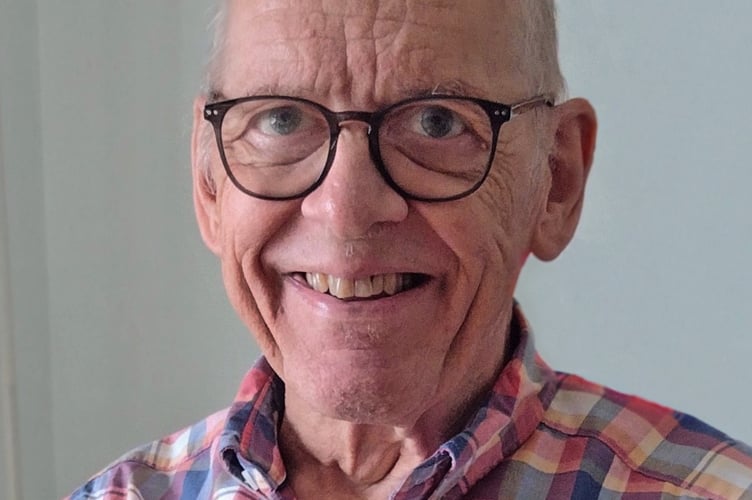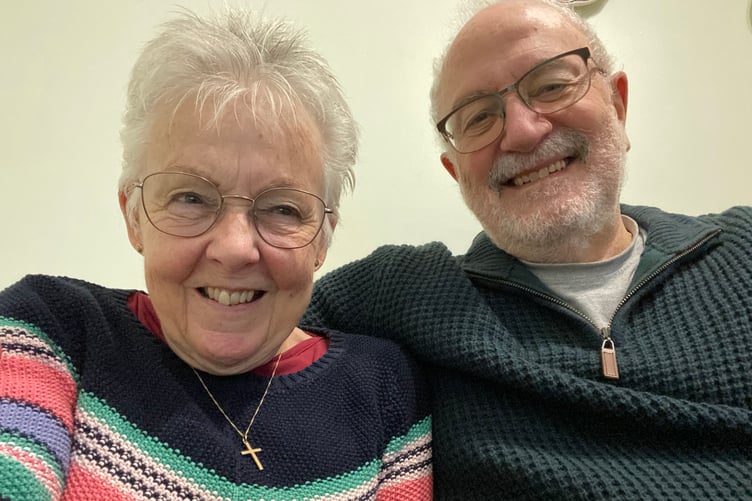Parkinson’s patients in the region have spoken of feeling ‘abandoned’ after the departure of the specialist leading an award-winning online home-based care project they had come to rely on.
The Parkinson’s initiative led by specialists supports patients to care for themselves at home, with a consultant and nurses based at Derriford Hospital easily accessible online to offer support.
It won an award for ‘digital innovation in health and social care’ at the Bright Ideas in Health Awards 2024.
However since the departure of Professor Camille Carroll, the Derriford consultant neurologist who led the project, in the past year, users of the service feel it has gone seriously downhill.
She left the project at Derriford Hospital, which is run by University Hospitals NHS Trust, Plymouth. when her contract ended. Those using the service say that they have not been a proper explanation of her departure from the trust – and the gap has not been filled.
Since the service launched in 2020, over 280 patients and families, carers and health teams have been supported in Plymouth, West Devon and East Cornwall.
The service combines hi-tech, like wrist-worn sensors, with traditional care including guidance on managing symptoms and support from specialist nurses.
Parkinson’s patient Chris Maycock, 75, of Wadebridge, said the service had gone downhill since the professor left.
He said: “After Camille left, even though UHP told us they were working to secure the future of self-care and maintain the individualised responsive care we’ve been used to, it has, instead, got worse and is now appalling.”
Chris added: “We need certainty about the future of ongoing specialist care because of the nature of Parkinson’s which affects us all differently.
“No one is taking responsibility for gaps in care. As my carer, my wife Kay is almost broken by the daily failures. The consultant left suddenly, without notice and no formal explanation to us.”
Remote care means the patients do not have to travel long distances to sometimes unnecessary routine appointments. Instead they have short-notice online meetings about immediate issues via nurses.
Marian Humphries receives care at remotely at Launceston.
She said: “We feel abandoned by the trust. After Camille left, nothing was put in her place to mitigate the loss. We have been abandoned.
“We have more knowledge and experience than some newer patients who are worse off than us. But our condition is still deteriorating in this situation where we feel let down.”
Professor Mark Hamilton, UHP medical director, said Prof Carroll’s contract had ended as planned: “We are aware of concerns raised by some patients regarding the Parkinson’s self-care service following the departure of Professor Camille Carroll, and we sincerely apologise for any distress or anxiety caused.”
UHP will inform all home-care Parkinson’s patients to ‘reassure’ them about service improvement.
He admitted: “Better preparation and engagement could have helped to alleviate uncertainty during this period of transition for patients, and we apologise for any distress this has caused.”
He promised patients and families the service continues ‘high-quality, specialist care and will to ‘strengthen and expand support’.
This includes creating a five-day-a-week telephone advice line, staffed by experienced nurses, expanding technology to support remote monitoring and self-management, increasing specialist nursing and ensuring patients are seen at least twice a year.






Comments
This article has no comments yet. Be the first to leave a comment.